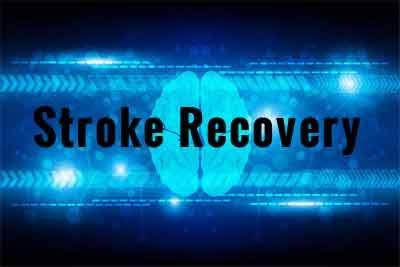- Home
- Editorial
- News
- Practice Guidelines
- Anesthesiology Guidelines
- Cancer Guidelines
- Cardiac Sciences Guidelines
- Critical Care Guidelines
- Dentistry Guidelines
- Dermatology Guidelines
- Diabetes and Endo Guidelines
- Diagnostics Guidelines
- ENT Guidelines
- Featured Practice Guidelines
- Gastroenterology Guidelines
- Geriatrics Guidelines
- Medicine Guidelines
- Nephrology Guidelines
- Neurosciences Guidelines
- Obs and Gynae Guidelines
- Ophthalmology Guidelines
- Orthopaedics Guidelines
- Paediatrics Guidelines
- Psychiatry Guidelines
- Pulmonology Guidelines
- Radiology Guidelines
- Surgery Guidelines
- Urology Guidelines
No improvement in motor function with amphetamines in stroke: JAMA

Treatment of d-amphetamine combined with physical therapy for stroke patients did not improve recovery of motor function compared with placebo combined with physical therapy, finds a pilot clinical trial. Results of the study are published in the journal JAMA Neurology.
Larry B. Goldstein, chair of the University of Kentucky Department of Neurology, and colleagues conducted the study to evaluate the effect of dextroamphetamine combined with physiotherapy for improving poststroke motor recovery and to test the efficacy of the approach.
Data from animal models show that the administration of dextroamphetamine combined with task-relevant training facilitates recovery after focal brain injury although results of clinical trials in patients with stroke have been inconsistent.
The study screened 1,665 ischemic stroke patients in five rehabilitation hospitals or inpatient units out of which Sixty-four participants were randomized to receive either 10 milligrams of d-amphetamine or placebo combined with a one-hour physical therapy session every four days for six sessions, in addition to standard rehabilitation. The treatment began between 10 and 30 days after the start of llness.
The primary outcome was defined as a difference in the change in Fugl-Meyer Motor scores, an impairment index assessing motor function, balance, and sensation. The study also assessed changes in the National Institutes of Health NIH-Stroke Scale, Canadian Neurological Scale, Action Research Arm test, Rankin Score, Functional Independence Measure, Ambulation Speed and Endurance, Mini-Mental State examination, Beck Depression Index and the Stroke Impact Scale as secondary measures. Participants were tested at baseline, the end of treatment and again at three months post-stroke.
Also Read: Methylphenidate and amphetamines best for treatment of ADHD
Key Results:
- Among the 64 patients randomized to dextroamphetamine vs placebo (55% men; median age, 66 years; age range, 27-91 years), no overall treatment-associated difference in the mean (SEM) change in Fugl-Meyer motor scores from baseline to 3 months after stroke was noted (−18.65 [2.27] points with dextroamphetamine vs −20.83 [2.94] points with placebo).
- No overall treatment-associated differences in any of the study’s secondary measures and no differences in subgroups based on stroke location or baseline severity were found.
- No adverse events were attributed to study treatments.
"Treatment with dextroamphetamine combined with physical therapy did not improve recovery of motor function compared with placebo combined with physical therapy as assessed 3 months after hemispheric ischemic stroke. The studied treatment regimen was safe," concluded the authors.
For more information log on to 10.1001/jamaneurol.2018.2338

Disclaimer: This site is primarily intended for healthcare professionals. Any content/information on this website does not replace the advice of medical and/or health professionals and should not be construed as medical/diagnostic advice/endorsement or prescription. Use of this site is subject to our terms of use, privacy policy, advertisement policy. © 2020 Minerva Medical Treatment Pvt Ltd